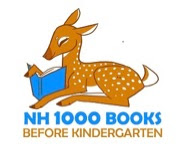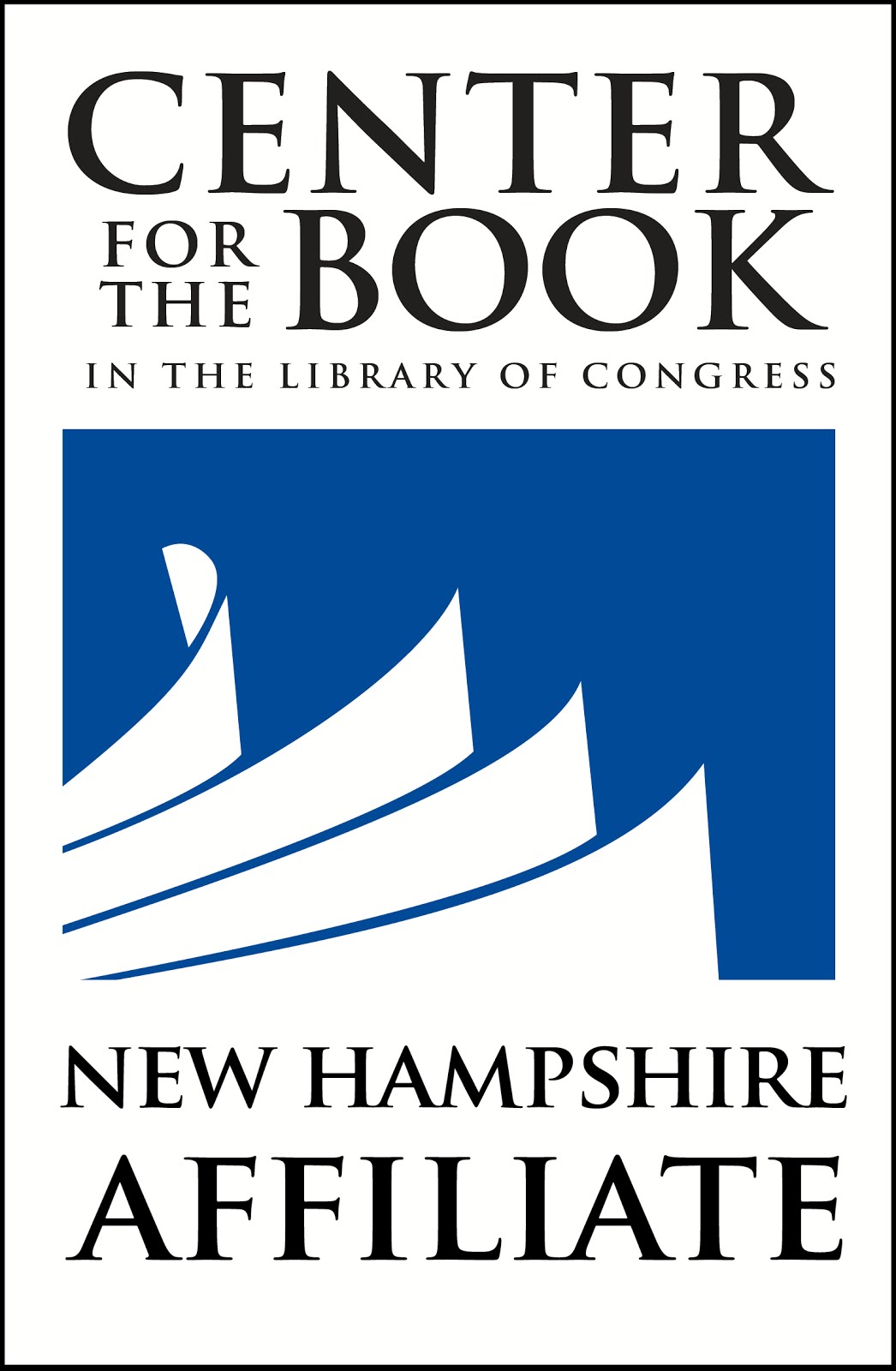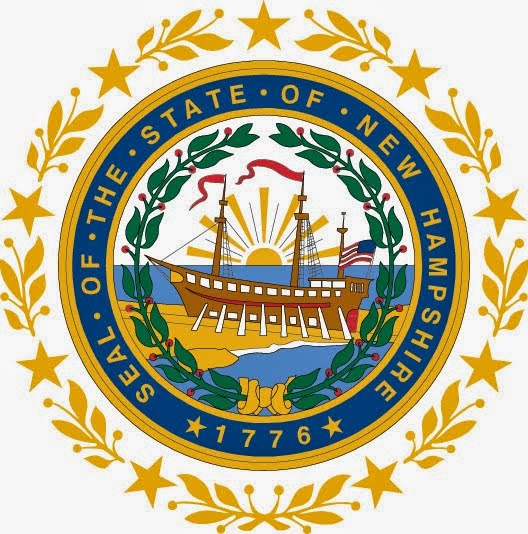 |
| Steve Sherman |
There
are a lot of wonderful writers living in our state, some full-time, some part-time. As the Director of
the NH Center for the Book I get the opportunity to talk to many of
them. This interview series of Q&As with New Hampshire authors here on Book Notes lets me share that experience a bit with
my blog readers.
IF SOMEONE HASN'T READ YOUR WORK YET, WHERE SHOULD THEY START?
Thank
you for asking, Mary Russell, and for this friendly project with your
Delphic question so I can use the word Delphic—because life is loaded
with contingencies.
Therefore, the answer must be: It depends. Do you like to read
about musicians? Then try “The New Hampshire Symphony vs. Igor
Stravinsky” in the
Boston Globe Sunday Magazine.
The great outdoors? Maybe Appalachian Odyssey; Walking the Trail from Georgia to Maine.
Julia Older and I backpacked the 2,170-mile, 5-million-steps footpath
together as thru-hikers (that is, as a single-season
trip). We also lived together to write together about The Great Hike
chapter by chapter. The Authors Guild selected this one for its
Back-in-Print series; the National Outdoor Book Awards then marked our
memoir as a “Classic “ for being “a significant contribution
to the field.” Nice. Or maybe start with a New England cozy. Maple Sugar Murders
set in New Hampshire with old-time Yankees in charge. Lots of
smiles for me writing that world. Old-time kids books? The two Hardy
Boys adventures I wrote (Danger for Breakfast and The Alaskan Adventure) were fun in remembering my young years spent.
Editing the anthology
A Scott Nearing Reader; Living the Good Life in
Bad Times
gave me a chance to read his more than 50 books and monographs about
righting the social keel of the American moral ship to the future. I
worked with
Helen Nearing on this one; she and Scott co-authored their influential Living the Good Life. Food? Julia and I have written cookbooks separately and together, including
Menus à Trios; The Soup, Salad and Bread Cookbook, which
helped us become friends with the supreme writer M.F.K Fisher. (Dinner
at six in her vineyard home, Glen Ellen, California.)
Bike Hiking. Maybe this
is one for foot-power bikers. The how-to-do-it is based on my riding an
old-time British Raleigh from Hancock to Los Angeles and living to
write three versions about it for Doubleday Dolphin
Books, Esquire magazine and
The New York Times Travel Section. For the
New Hampshire Times, reporting on the New Hampshire Presidential Primary gave me spin-offs that ended up on the
Los Angeles Times Op-Ed page, plus another New England cozy mystery—Primary Crime. In the end, my work is my writing,
and writing is writing no matter the length, the form, the subject, the publisher, the afterlife.
WHEN DID YOU FIRST THINK OF YOURSELF AS A WRITER?
No lightning bolt , no a-ha moment.
As for most of us, I cannot remember when I could not read just
as I cannot remember not writing. I think this is because I never
thought of a writer as noun but writer as verb. The kid of me had the
fun of making pencil words in a sentence row that
started the continuum of doing it, not merely being it. Very young
letters to my mother I signed Steve Sherman just in case she wasn’t
sure. This led to writing the hometown newspaper reports for the
baseball, basketball, football and track and field events
during my four high school years. This in turn led to the widening
continuum of
The New
Yorker magazine rejections, Esquire acceptance and more magazine acceptances,
The Boston Globe
and more newspapers, a book and more books. I was lucky. I was born to a
father I saw writing his words on a Royal portable at his lap
in his family living room—Pulitzer Prize father Gene Sherman of the Los Angeles Times. I was born and bred with it. I had the ink.
Cacoethese scribendi.
HOW DID YOU END UP LIVING IN NH?
From
Los Angeles to Alaska in a single bound. One of my five years in Alaska
led me to the log-cabin village of 154-population Ruby on the Yukon
River where
January temperatures sank to 70 degrees below zero, literally. Known as
The Great Land, “Alaska” stems from the Russian version of the Aleut
word Alakshak, meaning “great lands.” Or: alaxsxaq, the Aleut word
meaning “object toward which the action of the sea
is directed,” that is, “mainland.” The Great Land indeed—nearly 71 New
Hampshires could fit into Alaska. Better yet, Alaska could be cut in
half to make Texas the third largest state. In time, I wanted to see
Thoreau-and-Emerson country. So I steered my Beetle
Bug from The Great Land to the Great New
England. Should I rent this second-story room above brick-built Beacon
Street, central heart throb of downtown Boston? What was I thinking? I
rented a quiet room for orphan me in an olde abode
of suburbia Wellesley Hills. At the stone-wall branch of the Wellesley
Public Library, I browsed myself into the fiction section and glanced
inside a novel in which the author wrote his dedication: “Thank you,
MacDowell Colony.” What was that? I tracked down
what the celebrated MacDowell Colony was all about, that is, an angelic
giver of life-saving space and time bestowed with honor and immense
generosity for writers, artists, playwrights, composers and others with
the drive to work at it. I applied for a residency.
Accepted! And so I drove my Beetle Bug north to “Our Town”
Peterborough, New Hampshire. MacDowell Colony Director Conrad Sponholz
drove me along the dirt road easing through the stalwart white pines and
red maples. I said: “This is my kind of country.” He
placed me and my Royal portal typewriter—high school graduation gift
from my Mother and Father—into the secluded, snug, stone-wall studio
cabin named Veltin. Thornton Wilder worked here. Life turned fecund. I
wrote
and wrote. My MacDowell time ran out. I rented a snug, secluded,
wood-wall house in Hancock seven miles north and full of future. A
Sunday pianist, I played the Khachaturian
Piano Concerto on the cherry-wood grand piano in Savidge Library at the Colony. And listened time after time to Charles Ives’
Symphony No. 4,
Stokowski’s version only. On one of those Sundays, I met a newly-arrived
MacDowell Colonist from her time in Brazil. When her Colony time ran
out, I proposed we hike the Appalachian Trail. Julia
Older asked, “How far?” I said, “Well, all the way.”
WHERE DO YOU LIKE TO WRITE?
I
like best to write alone in a quiet room. The other extreme is working
in a newspaper newsroom under deadline, which is like turning yourself
into one of
the zoo monkeys that can typewrite “Hamlet” if only he has enough time and bananas. If you can write in a newsroom, you can write anywhere and enjoy it from 1-10.
HOW IMPORTANT IS PLACE IN YOUR WRITING?
Not as much as people. People act and react. People have character good or bad. From character emerges the actions of story. Narrative in both fiction and nonfiction is driven by loving, hating, birthing, dying. Hurting, helping, freeing, trapping. Giving, taking, stealing, making. Place has mass but doesn’t kiss back. Place adds definition and context but has no hands to shake or “How do you do?” to hear. On the Appalachian Trail, a real-life 80-year-old outdoor Mainer ferried us in a pole-pushing rowboat across the Androscoggin River. His voice BOOMED. Of course—he came from the big wide open land place of Maine and had to be heard. He got forged by his place. He had to BOOM his call of the wild across the river to us and, no doubt, everywhere else to be heard through all those thick noisy spruce. What a voice! I put that voice into my Maple Sugar Murders. He didn’t follow me; I followed him. He moved my story along. All I did was re-individualize him and his behavior into my novel about greed, money, maple syrup and people.
Not as much as people. People act and react. People have character good or bad. From character emerges the actions of story. Narrative in both fiction and nonfiction is driven by loving, hating, birthing, dying. Hurting, helping, freeing, trapping. Giving, taking, stealing, making. Place has mass but doesn’t kiss back. Place adds definition and context but has no hands to shake or “How do you do?” to hear. On the Appalachian Trail, a real-life 80-year-old outdoor Mainer ferried us in a pole-pushing rowboat across the Androscoggin River. His voice BOOMED. Of course—he came from the big wide open land place of Maine and had to be heard. He got forged by his place. He had to BOOM his call of the wild across the river to us and, no doubt, everywhere else to be heard through all those thick noisy spruce. What a voice! I put that voice into my Maple Sugar Murders. He didn’t follow me; I followed him. He moved my story along. All I did was re-individualize him and his behavior into my novel about greed, money, maple syrup and people.
The
business of life makes hats for us all. I wear the hat of food
shopping, the hat of hiking Grand Monadnock, the hat of facing tomorrow.
In summer I wear
the Willard Pond hat, in winter the Life-Repair hat. Most of all and
most of the time, I wear the Writer Ready Hat. With all its little,
off-world antennae, this hat alerts my Writer Storage Room to the kind,
alert, loving mother with child at Hannaford’s
Supermarket, the lonesome old man staring at the horizon from the
mountain summit, the disembodied message of so much sadness of a
telephoning friend.
WHAT’S THE BEST PIECE OF ADVICE (WRITING OR OTHERWISE) YOU WERE EVER GIVEN?
One of the best pieces of advice for the writing life, for when writing and life coincide, came to me by example first and articulated later. Write everything—everything—as an end in itself. Make this the bull’s eye goal. The first in time and priority. Of course, we market, we distribute, we disseminate, we write to be read, to reveal the truth, to give a kindness, to enjoy the fun of it and all the rest. But these are the afterlife peripheries of the writing itself. Save your ambition for your writing. Go not for $uccess but accomplishment. Charles Ives said when he won a Pulitzer Prize for his work: “Prizes are for boys. I am a man.” Who is so pure? But the best possible writing effort expended for each and every word we let escape us lets us know that the “Writing Life” we seek is a redundancy.
One of the best pieces of advice for the writing life, for when writing and life coincide, came to me by example first and articulated later. Write everything—everything—as an end in itself. Make this the bull’s eye goal. The first in time and priority. Of course, we market, we distribute, we disseminate, we write to be read, to reveal the truth, to give a kindness, to enjoy the fun of it and all the rest. But these are the afterlife peripheries of the writing itself. Save your ambition for your writing. Go not for $uccess but accomplishment. Charles Ives said when he won a Pulitzer Prize for his work: “Prizes are for boys. I am a man.” Who is so pure? But the best possible writing effort expended for each and every word we let escape us lets us know that the “Writing Life” we seek is a redundancy.
WHAT BOOKS DO YOU LOVE AND WHAT ABOUT THEM SPEAKS TO YOU?
Books
are good company. But picking the best many is a whole lot easier than
picking the best few. Books speak to me for different reasons with
different results
at different life times. Lest we forget, the flesh-and-blood,
head-and-heart, writer-authors of books do the speaking. No matter what,
where, when, who, why and how, parts of books we’ve read become part of
us. Richard Halliburton’s
Book of Marvels opens teenager me to the adventuresome life. Robert Louis Stevenson’s
Treasure Island to the Long John Silvers of the world. Thomas Aquinas’
Summa Theologica to astounding mind. Thomas Wolfe’s
You Can’t Go Home Again shows me why family and friends act the way they do. Harriet Beecher Stowe’s
Uncle Tom’s Cabin how to right a wrong. Ralph Waldo Emerson’s
Essays tell me when “The greatest gift is a portion of thyself.” Henry David Thoreau’s
Walden shows me where to listen to a different drummer. Scott Nearing’s
War tells me who says “War is the organized destruction and mass murder by civilized nations.” Elizabeth Barrett Browning’s
Sonnets shows me what it takes to count the ways. John Steinbeck’s
East of Eden gives me a sense of heft. E.E. Cummings’
anyone lives in
a pretty how town with up so floating many bells down leads me up and away. Virginia Woolf’s
Orlando lets me loose. Edith Hamilton’s
Mythology shows me that her writers are immortal, that writers who read books get to enjoy the company of the best of colleagues.
WHAT ARE YOU WORKING ON NOW?
A book review for a newspaper, a profile for a magazine, a memoir for a book. They simmer at different stages and take overlapping energies. Other than with editors, I don’t talk much about in-progress work. My bent is to not talk away the story.
A book review for a newspaper, a profile for a magazine, a memoir for a book. They simmer at different stages and take overlapping energies. Other than with editors, I don’t talk much about in-progress work. My bent is to not talk away the story.
WHAT DO YOU WANT TO SHARE THAT I NEGLECTED TO ASK ABOUT?
Asked like a pro, Mary Russell.
You could ask about writer’s block and I would answer, “What’s
that?” Do you mean, time block? Not enough time to write it all? You
could ask what is a good training field. I’d answer that writing for
newspapers is a good end in itself as well as a good
battleground for facing deadlines, dealing with an endless variety of
people and situation, following the detective search for justice and
kindness, being part of an essential, Constitutionally-protected field
of public service, giving voice to the voiceless,
writing history in a hurry, seeing the quick turnover of your work into
print and noticing the better job next time, and the emergence of your
own voice. You could ask what to choose—quantity or quality. I’d answer:
Read lots and write lots, but especially
lots. Quality emerges from quantity, though not necessarily so. You
could ask if any fun is involved. Fun?! How do you spell that? Fun:
W-r-i-t-i-n-g.
You can learn more about Steve's work, and that of Julia Older, at www.Appledorebooks.com.








2 comments:
What a wonderful interview! Many of Mr. Sherman's answers are pure poetry. I am going to share some of his advice with my 7th & 8th grade book club members and my daughter who also loves to write. Thank you!
So glad you enjoyed the interview!
Post a Comment